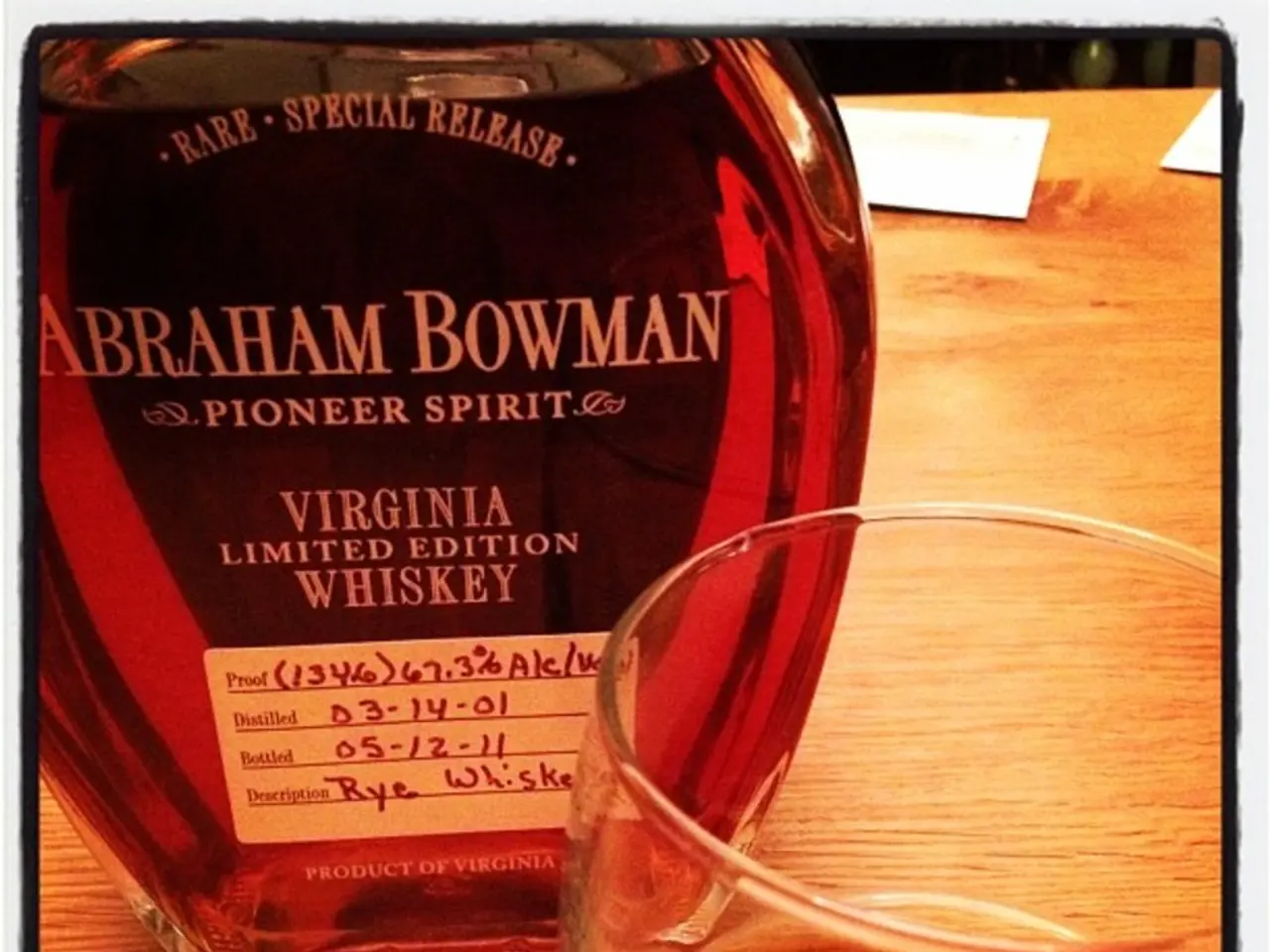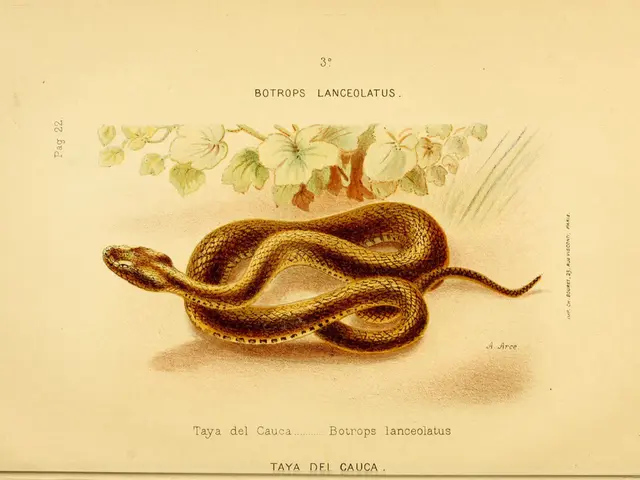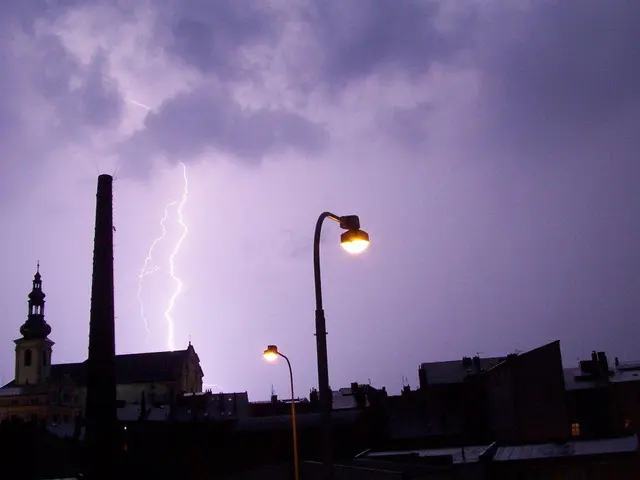Whiskey manufacturers in Ireland are closing their doors due to Trump's trade taxes
================================================================================================
In the heart of the Emerald Isle, the Irish whiskey industry has been facing a storm of challenges in recent times. The once-booming sector, which saw the number of distilleries grow from four to over 50 in the past few years, is now grappling with a series of obstacles, including tariffs, rising production costs, and waning U.S. demand.
One of the most significant challenges comes from the U.S. tariffs on Irish whiskey exports. As part of President Trump's 2025 "Liberation Day" trade policy, a layered tariff regime has been introduced, raising costs on Irish whiskey exports to the U.S. by 15% (or 10% for Northern Irish products). This tariff disparity threatens Irish whiskey’s competitive position in the U.S., a key global market, as it raises export costs and retail prices, potentially forcing some producers to shift focus away from the U.S. market.
Jameson, distilled in the Republic of Ireland, faces a 15% tariff due to the U.S.-EU deal, increasing export costs and potentially raising retail prices in the U.S. market. On the other hand, Bushmills, from Northern Ireland, faces a 10% tariff under the separate U.S.-UK trade deal, leading to comparatively lower tariffs but still a notable cost increase. This division creates a trade barrier, with the north and south of Ireland facing distinct tariff regimes, complicating marketing and export strategies.
The tariffs contribute to a fragmentation of the Irish whiskey brand and could potentially lead to whiskey price increases. Bloomberg Intelligence analyst Duncan Fox estimates that the trade war will cause whiskey prices to rise by as much as 6 percent. The U.S., being a crucial market for Irish whiskey, is the primary focus, according to Duncan Fox.
The industry's struggles are not just limited to the tariffs. Electricity prices for whiskey production in Ireland have nearly doubled compared to four years ago, and holding costs of the booze have become expensive for wholesalers due to increasing interest rates. These factors, coupled with ongoing supply chain issues, have led several independent distilleries to close or limit production.
Notable closures include the Killarney Brewing & Distilling Co., resulting in the loss of about 50 jobs, and Diageo's extended pause on distillation at the Roe & Co Distillery in Dublin in June. However, Pernod Ricard, the maker of Jameson, resumed production in Midleton in April after a halt in April.
Marie Byrne, who founded the Dublin Whiskey Company, states that the industry is cyclical and demand had started to wane in the U.S. by the end of 2023. Eoin O Cathain, director of the Irish Whiskey Association, states that Irish whiskey makers have been struggling over the past couple of years, with the talk of tariffs raising concerns.
Despite the challenges, distilleries are taking measures to offset tariffs and maintain demand in the U.S. market. They are trying to cut costs and find innovative solutions to navigate this difficult landscape. By 2022, exports of Irish whiskey to the U.S. had doubled the previous decade's levels, reaching some 48,000 tonnes. However, exports to the U.S. by volume in 2024 were down a third from 2022 levels, indicating a tough road ahead for the industry.
In conclusion, the Irish whiskey industry is facing a series of challenges, with the U.S. tariffs being a significant factor. The layered tariff regime could raise costs on Irish whiskey exports to the U.S. by 15% (or 10% for Northern Irish products), potentially increasing U.S. shelf prices by around 26 cents per bottle and impacting growth prospects for the industry. The industry is resilient, and distilleries are taking measures to offset tariffs and maintain demand, but the road to recovery will be long and challenging.
Sports competitions and training sessions provide an alternative source of relief for some in the Irish whiskey industry, offering a chance for workers to maintain physical fitness and team spirit. As whiskey distilleries across the country have been struggling to keep up with the rising costs and tariffs, several employees have taken up sports, such as Gaelic football, hurling, or soccer, as a way to stay active and connected.
For many workers, engaging in sports offers a sense of camaraderie and a break from the stressors of the industry. These sports activities provide a valuable outlet for distillery workers to unwind, improve their well-being, and build close-knit communities. As the Irish whiskey industry continues to face difficult times, sports can offer a much-needed support system for those working within it.








